Best Practice in Dissemination and Sustainability
This award recognises people and teams who have previously been recognised within QiC Diabetes. Qualifying initiatives have successfully disseminated and sustained best practice for a minimum period of 2 years, for the ultimate benefit of people with diabetes and/or their families and carers.
Winner
Sustaining improved outcomes for young adults: The Liverpool model
Liverpool University Hospital NHS Foundation Trust (Royal Liverpool University Hospital)
In 2017, the Young Adult Service at the Royal Liverpool University Hospital won a QiC Award for a significant reduction in non-attendance rates, increased numbers achieving glycaemic targets, reduced diabetes-related emergency admissions and substantial cost savings. This was achieved through restructuring the service pathway, improving communication and engagement with young adults, and establishing a peer-support platform. Further changes have resulted in continued improvements in service-related and clinical outcomes for young adults with diabetes. NICE has highlighted it as an example of best practice and NHS England has used it in defining standards of care for young adults.
For more information about this project, read the article by Reza Zaidi and colleagues here.
Type 1 Specialist Service – Children, Young People and Emerging Adults
This category recognises initiatives that deliver specialist support for adults with type 1 diabetes and have demonstrated a positive impact on the diagnosis and management of type 1 diabetes and its associated secondary complications.
Winner
Growing up, moving on – supporting young people leaving paediatric services
Cwm Taf Morgannwg University Health Board
Prince Charles Hospital in Wales is in an area of marked social deprivation, but the paediatric unit has recorded some of the best outcomes in the National Paediatric Diabetes Audit for several years. Following critical feedback from young people moving to adult services, the paediatric team engaged their colleagues in adult services to address issues that led to disengagement and deterioration in outcomes. This process began in 2016 and, within a year, NHS Wales hailed the model an example of good practice. Evaluation and changes were accomplished through the reconfiguration of existing work patterns and without additional costs. The judges thought this entry was the ideal of what should be happening within the industry.
Highly commended
Newham diabetes transformation programme – supporting young people (16–25 years) with type 1 diabetes
WEL CCGs
Newham, East London, has a young population (over 40% under 25 years) with significant deprivation and social inequality. Recent migration from Somalia, Eastern Europe and Africa has seen a rising prevalence of type 1 diabetes. NHS England funded a diabetes transformation programme which has: determined the number of young people with type 1 diabetes, including those ‘lost to follow-up’; identified and addressed gaps in service, particularly mental health needs, education and support for A&E attenders; developed a youth worker role; increased patient engagement through a peer support programme; redesigned referral pathways across primary and secondary care; and used online consultations for more flexible care.
Finalist
Hypo Dino, created by children to inspire others
Children and Young People’s Wales Diabetes Network
Hypo Dino is a picture book created by a girl of 8 called Katie, who has type 1 diabetes. The hero of the story is Tim Dinosaurus, a dinosaur with type 1 diabetes and a spy protecting the world from an evil villain. Tim experiences hypos and has to learn to manage his diabetes in order to save the world. Katie brought the book to a clinic appointment at Morriston Hospital (Swansea) and the Children and Young People’s Wales Diabetes Network worked with a graphic designer to recreate it as a printed resource that is distributed to families across Wales through paediatric diabetes units.
Finalist
Supporting positive self-care between clinic visits using inspirational postcards
Poole Diabetes Centre, Poole Hospital NHS Foundation Trust
It was felt that writing a ‘note to self’ on a postcard could help motivate the young adult diabetes clinic population (15–23-year-olds) to look after their own diabetes. The postcards used initially were replaced by more appropriate and cheaper cards designed by the diabetes specialist nurse and the postcards were assessed for suitability in different settings. A questionnaire for service users and healthcare professionals found the postcards were well-liked by young people with diabetes: 83% would ‘recommend’ or ‘highly recommend’ using them and 87% felt more engaged with their diabetes team between clinic visits; 74% felt more motivated to manage their own diabetes. Fore more information about the inspirational postcards, read Jo Dalton’s article here.
Diabetes Education Programmes – Children, Young People and Emerging Adults
This award recognises initiatives to advance the skills and knowledge of people with diabetes.
Winner
SEREN Connect: holistic young adult diabetes education
NHS Collaborative, NHS Wales
SEREN Connect is a comprehensive education programme to address a long-standing gap in service provisions for young adults living with type 1 diabetes. It helps teams to support every child with diabetes in Wales. The transition from young person to young adult and the difficulties of trying to self-manage health is hard at this notoriously turbulent time. SEREN Connect provides tools for healthcare professionals to deliver information on age-appropriate topics that directly or indirectly impact the lives of young adults living with type 1 diabetes. It aims to influence and improve services across Wales via paediatric and adult colleagues. To find out more about how SEREN Connect is supporting young adults, click here.
Diabetes Team of the Year
Teamwork plays a critical and growing role in high-quality diabetes care. This award recognises the value of outstanding multidisciplinary team achievements and contributions that help better prevent, diagnose or treat diabetes and support self-care management to improve the experience and outcomes for adults, children, young people and emerging adults with diabetes and/or their families and carers.
Winner
Paediatric diabetes quality improvement – be brave and fail fast
Sheffield Children’s NHS Foundation Trust
In the 2014–15 National Paediatric Diabetes Audit, Sheffield was one of the top 10 units in the UK, with 38.4% of patients achieving an HbA1c <58 mmol/mol (national average: 22.0%) and a mean HbA1c for the clinic population of 62.8 mmol/mol (national average: 70.6 mmol/mol). Benchmarking against 2016–17 data showed that outcomes were deteriorating when those nationally were improving, so an application was made to join the Royal College of Paediatrics and Child Health National Diabetes quality improvement initiative pilot to bring about changes. Outcomes for newly-diagnosed patients in the 2 years since compare favourably to preceding years and other paediatric units. Click here to learn more about this initiative.
Outstanding Educator in Diabetes
Supported by the Primary Care Diabetes Society (PCDS), this award is presented to an individual who is based in the UK or Ireland and delivers excellence in education in a specialist or community setting, whether through developing innovative teaching tools or courses; providing mentorship for other educators; or delivering and promoting externally-developed training. He or she will have a clear patient focus and will be seen as a champion for education in his or her area.
Winner
Lizbeth Hudson
Lizbeth has always gone the extra mile to help children, young people and parents to understand the information around diabetes care. She is kind and caring and always has time for people – even when she is so very busy. Sandwell has consistently had the best HbA1c results for the past 5–6 years and yet is a very deprived area, which makes managing diabetes harder. Lizbeth has achieved great results in difficult circumstances.
Finalist
Gillian Purcell
Gillian is instrumental in bringing positive change to Royal United Hospitals Bath NHS Foundation Trust patients. Due to the imminent withdrawal of their current meters, she has introduced an insulin adviser app and devised a virtual teaching package to allow education despite COVID-19 restrictions. Her proactive response and comprehensive work has been recognised and shared with the South West Paediatric Diabetes Network. Gillian teaches ‘treat to target’ principles and organises a rich education programme, including bite-sized education for clinics, teenage events, cooking groups and pizza day. She has written and delivered a download masterclass for families.
Gillian’s positivity inspires the team and patients. She has devised digital solutions to continue high-quality education despite current restrictions. These have been shared across the network, with great feedback. She has delivered her digital teaching package to over 25% of eligible patients and cascaded her teaching to the team. She uses feedback from children and young people to continually improve her sessions. Her quality improvement approach has been pivotal in lowering clinic HbA1c and above-average PREM scores for providing clear information, communication and support for self-care, especially exercise and carbohydrate counting.
The People’s Award
This is a special award, supported by Diabetes UK, which recognises someone very special who has supported/cared for people with diabetes in 2020.
Finalist
Sally Bussey
Sally was nominated by her daughter: “She looked after and controlled my diabetes from newborn until I was old enough to do it myself, has always supported me through everything. She uses her knowledge of diabetes and her care for me to now help young children within the primary school she works at to look after their diabetes and frequently coaches other parents of type 1 diabetic children to help them manage their child’s diabetes. She was highly spoken of by many diabetes consultants and nurses throughout my childhood. Her school was specifically told to employ her as a ‘diabetes helper’ due to her commitment with my diabetes.”
Unsung Hero
The Unsung Hero Award award goes to an individual or team who the judges felt deserves recognition, for really championing the work in their area or a specific project. This year, there were two winners.
Winner
Katie Courtney and Ava Morgan, creators of Hypo Dino
These two young girls covered an important area and showed a remarkable achievement in creating the Hypo Dino book on their own initiative. Their story is very powerful and these two young people are extraordinary.
Winner
Dr Rose Stewart
Rose demonstrated that individuals can really drive change. The Talking Type 1 project was a great programme with impressive outcomes and Rose was the leader on this, making a real difference to patients’ lives. This was Rose’s second 2020 QiC Diabetes Award, as she was also winner of NHS Wales Outstanding Contribution for Services in Diabetes.
Judges’ Special Award
The Judges’ Special Award (not enterable directly) is judged from all entries received, irrespective of category, for a project that the judges feel deserves national recognition and a platform to be shared with the wider diabetes community.
Winner
SEREN Connect: holistic young adult diabetes education
NHS Collaborative, NHS Wales
See Diabetes Education Programme – People with Diabetes for description.
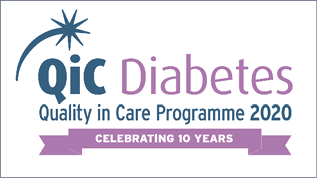
A full list of all of this year’s winning, highly commended and finalised entries is available at: www.qualityincare.org/diabetes
The results programme can be downloaded at: www.qualityincare.org/diabetes/2020/qicdiabetesresults.pdf
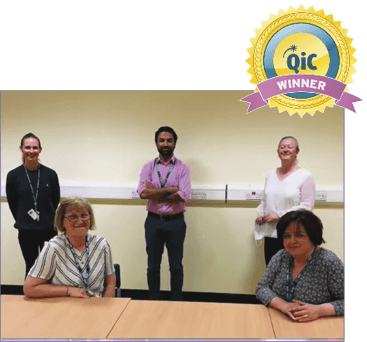

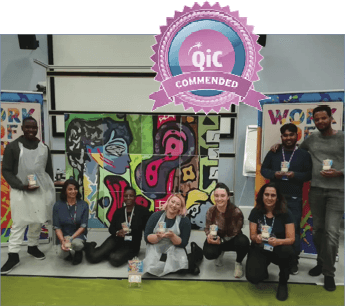
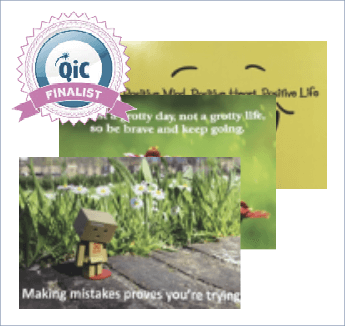
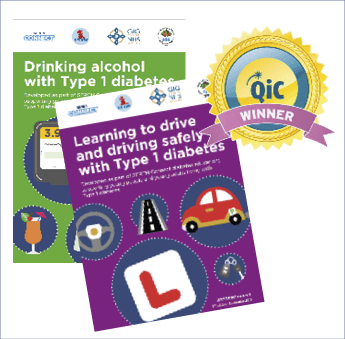

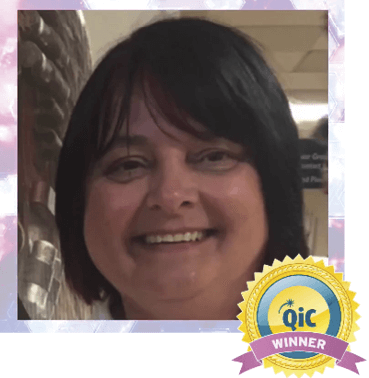
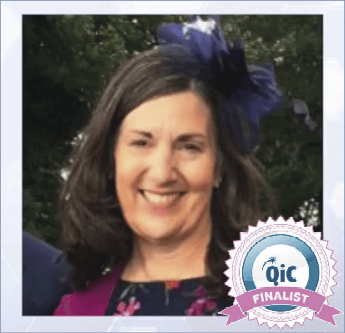
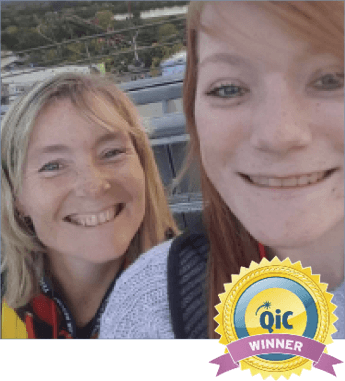

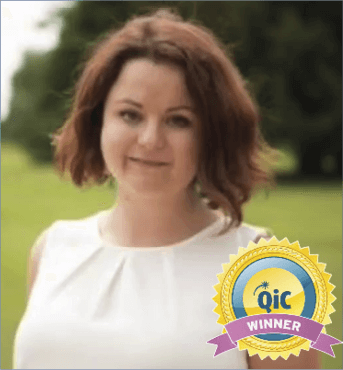

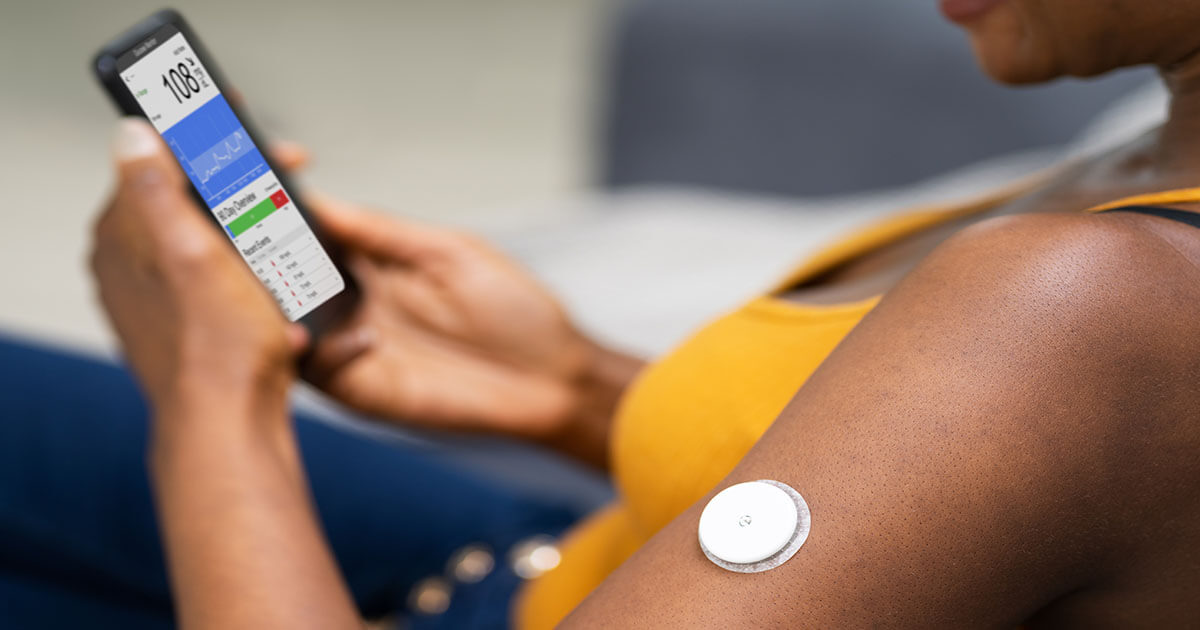



NHSEI National Clinical Lead for Diabetes in Children and Young People, Fulya Mehta, outlines the areas of focus for improving paediatric diabetes care.
16 Nov 2022